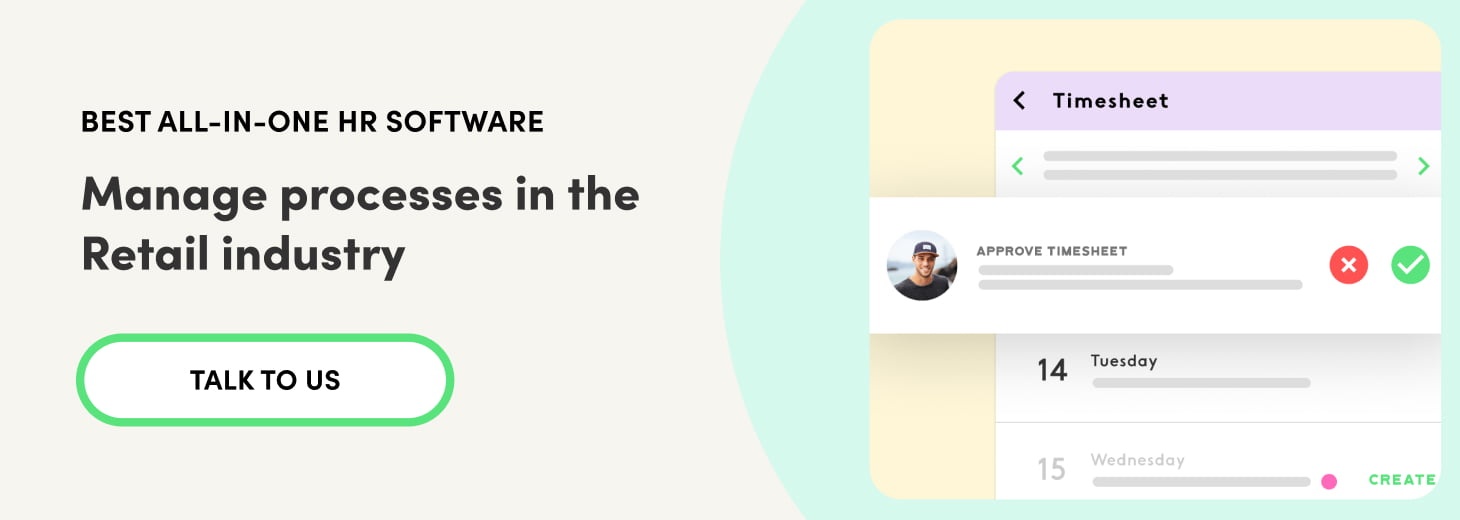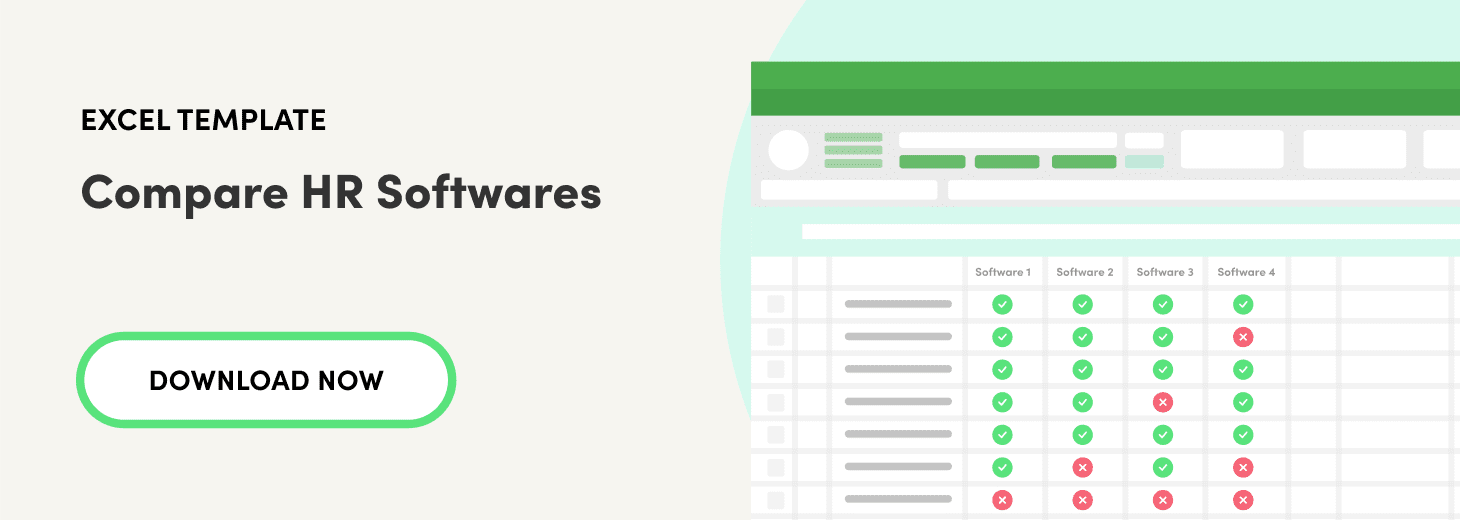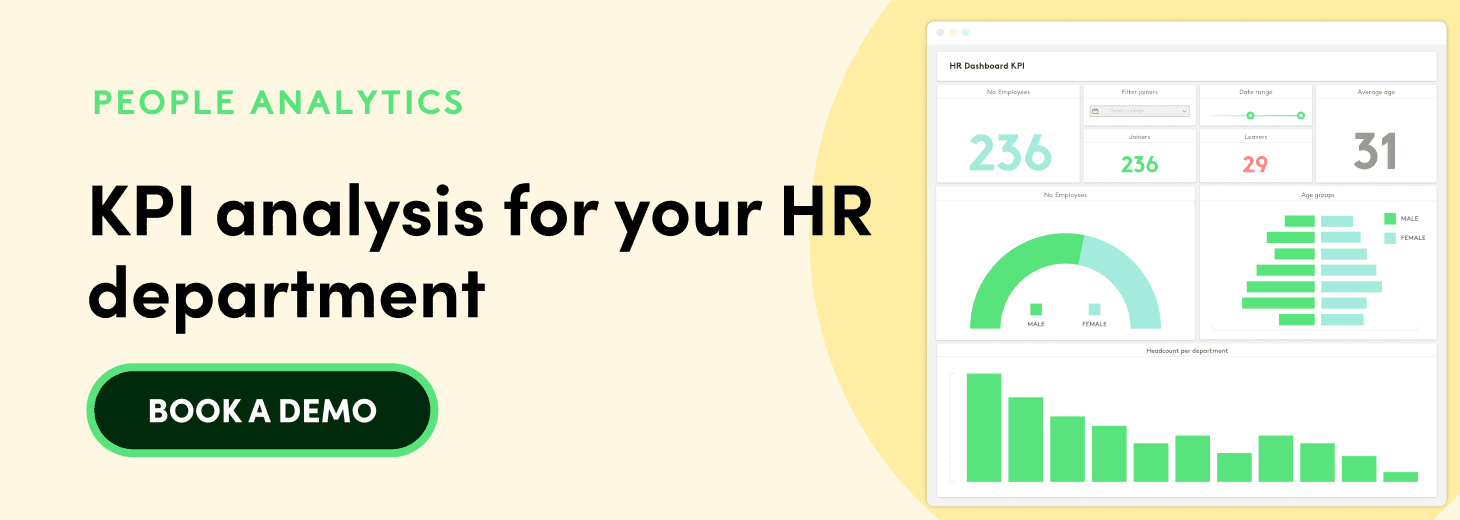There is no magic formula for recruiting retail employees, but by applying a few best practices it is possible to overcome the recruitment challenges that commonly arise in the sector.
Finding and hiring the best professionals is a priority for HR teams in retail. Ultimately, improved product sales, efficiency and good customer service provision all depend on the people who make up the company.
In this article, we have put together some tips on how to streamline the recruitment process in this sector.
The importance of talent in the retail sector
Recruiting sales staff in retail has become one of the HR team’s main tasks. Technology and the growth of online sales have made recruiting, training, and retaining professionals a priority.
In this context, professionals who work in the sector need to have a specific skill set that must also evolve as consumer behaviour changes. As such, companies value the candidates who can:
- Enrich customer experience.
- Act as a connecting link between the physical shop and the web.
- Quickly identify each customer’s needs.
- Build customer trust.
- Use management and organisation skills.
When we find the perfect candidate and our recruitment in the retail sector has been a success, the next task is to train them and ensure they are happy to stay at the company. One of the main HR challenges in retail is the high leaving rate among workers. For example, the US is a typical reflection of the situation: in fact, the average retail turnover rate in the United States is 60%, compared to 19% in other industries.

10 tips to find the best talent in the sector
How do you recruit the best sales personnel for the retail sector? Follow these tips to attract the best employees.
1. Use recruitment software
Cloud-based recruitment software allows the retail HR department to automate many manual tasks that take time and resources, enabling them to speed up the process and make it more efficient.
For example, with the right program it is possible to:
- Automate CV screening.
- Automatically add all candidates to the company’s talent database.
- Eliminate unqualified candidates automatically.
- Advertise job vacancies on different platforms at once with a single click.
- Create a structured employee referral program.

2. Analyse the hiring sources
Recruitment in the retail sector can benefit greatly from data analytics. If the HR team pinpoints which sources deliver the best candidates, it can rethink the strategy and invest only in the ones that are worthwhile.
For example, if the hires that come from employee referrals have been successful, it will be sensible to invest in a structured referral system within the company.
To be able to obtain this information reporting and analytics software is a must. This will constantly gather the information and organise the data so the team can interpret it correctly.

3. Write accurate job adverts
Dedicate enough time and attention to writing the job description and requirements for the vacancy, so you attract the right candidates. It is important to be clear about the desired technical skills and experience.
4. Hire fans of your brand
If you don’t know how to recruit salespeople for the retail sector, why not take a look among your best clients? They know your business, the products and services offered, and of course love the brand.
Making them part of the team will let them share their passion with others, and they will be loyal and engaged employees.
5. Invest in marketing
For many companies, investing in marketing to promote the hiring process can perhaps seem a big step. However, implementing certain measures can help you attract a wider range of candidates.
A very simple way to start with marketing is to advertise vacancies on the company’s social networks. It is a way to reach legitimate professionals that are perhaps not actively looking for work, and, as we said before, fans of the brand.
You can also encourage employees to share aspects of the company culture on their profiles and in this way convert them into company ambassadors.
6. Make the position seem accessible
Many candidates decide not to apply for jobs because they don’t think they have the experience or skills required for the position. Therefore, it is important for HR to communicate the company needs realistically, without being overly demanding. For example, for junior positions it is not necessary, nor does it make much sense, to ask for many years of experience.
7. Don’t race through the process
Recruitment in the retail sector shouldn’t be rushed. Don’t settle with the first candidate that seems right for the position; look for the person who will fit in with the company culture and is a good match for the role.
Although delaying the recruitment stage costs money, finding the perfect candidate is the best investment in the medium to long term.
8. Look beyond traditional interviews
Professionals are used to job interviews, and in general they are all capable of doing them successfully. However, how can we really gauge if the person possesses the skills required for the position? The best idea is to sidestep the traditional interview process and get creative.
For example:
- Take a walk around the offices and see how the candidate behaves.
- Organise group interviews.
- Role play real-life situations with customers.
- Use personality testing techniques to get to know the candidate better.
9. Never stop recruiting
Companies with high levels of new employees or staff turnover should never stop recruiting talent. If we give professionals the opportunity to send their CVs, we will gradually build up our own talent database. In this way, when we have a requirement, we can start by looking at what we have in the archive.
10. Prepare a long list of potential candidates
In the retail sector, the average rate of employee absenteeism is around 7%, and in the UK, 74% of retailers are understaffed 25% of the time due to unplanned absences, according to data from The Workforce Institute. This means that during the recruitment process, there is also a chance that candidates will not turn up to interviews without giving advance notice.
For this reason, we advise having a long list of potentials so, if this happens, you can turn to the next option and so on.




